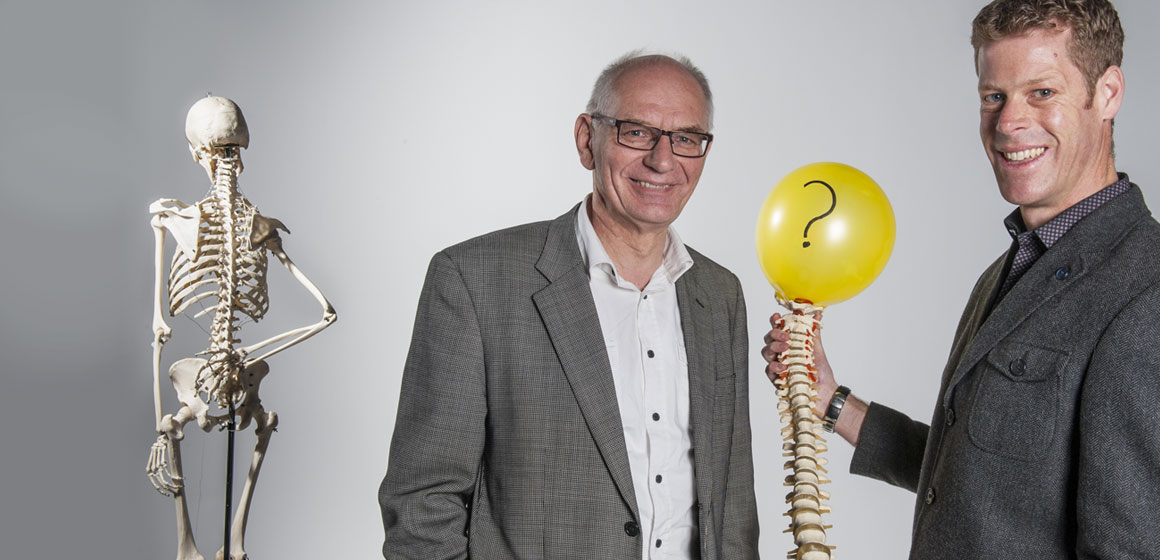
As many as 30 per cent of New Zealanders have back pain on any day, causing suffering, reduced quality of life and hundreds of millions of dollars spent in health care.
University of Otago, Wellington researcher Ben Darlow is exploring new ways to approach and manage this major health issue.
Darlow is looking at how attitudes and beliefs influence the development and persistence of back pain, a phenomenon he encountered
as a physiotherapist.
“Often I was spending more consultation time discussing and addressing people's beliefs than the traditional physiotherapy domains of biomechanics and movement.”
His interest in these beliefs inspired his PhD, for which he made contact with Professor Tony Dowell, of the Applied Research of Communication Health (ARCH) group within the University of Otago, Wellington's Department of Primary Health Care and General Practice, for supervisory support.
Dowell believed the fit between the research group focus on communication and Darlow's ideas would be a good one. “Clinicians have a key role in influencing people's beliefs about their health, so research that provides insights and opportunities to improve this aspect of care is invaluable,” he says.
Co-supervision from the School of Physiotherapy's Professor David Baxter and Department of Psychological Medicine's Fiona Mathieson also ensured the research was an interdisciplinary endeavour.
Dowell had many questions, prompting numerous interesting and robust discussions, and forcing Darlow to thoroughly explain and justify his assumptions and analyses – such as the idea that placing more emphasis on reducing fear and less on the importance of injury in acute back pain would enhance recovery beyond the current standard advice to “keep moving”.
“Although patients are often told to keep moving, they also receive the impression that their back needs to be protected and they fear creating further injury. These beliefs can be significant barriers to activity participation,” Darlow says.
Darlow's research with patients and GPs has indicated they may share many beliefs about the vulnerability of the back and activities which may be dangerous. GPs, therefore, may not be in an ideal position to provide their patients with updated information, he says.
“Research evidence actually suggests that the back is much more robust than people give it credit for and that protecting the back results in worse outcomes.”
Based on his findings, he has developed a tool for GPs to help them identify important things that might influence a person's outcome and to focus management on these things.
“Unless health professionals have a good understanding of recent evidence which they can then relate to their patients, they can end up reinforcing misconceptions that their patients might already have,” he says.
“There is great potential to reduce the burden of back pain by providing the right information and being clear about what to do.”
Funding
- Lottery Health Research
- Physiotherapy New Zealand
- University of Otago Postgraduate Scholarship